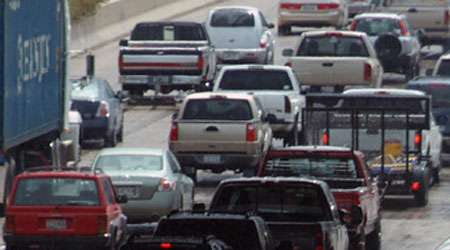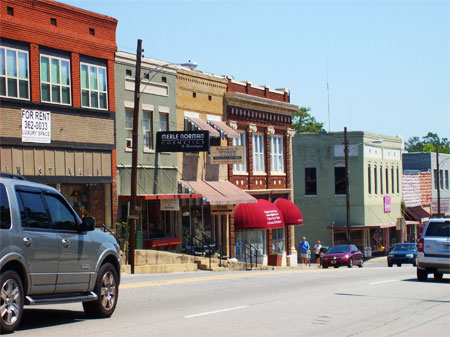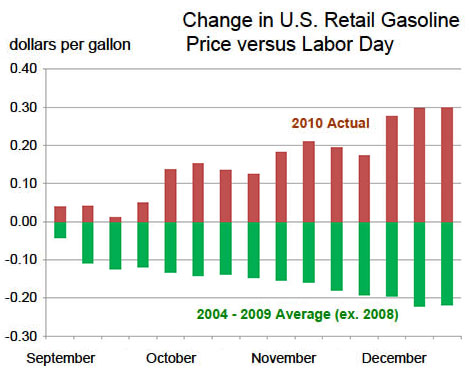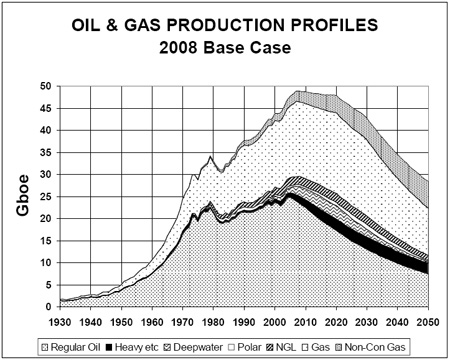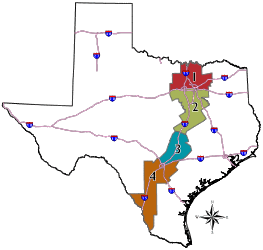Me too
Yep, I’m still here too.
Over the past year, I’ve been slammed transitioning into a new job. These days, I oversee websites for a TV station, where I’m having a blast.
But I miss my little playground here, where I get to muse and write and try out some webby type stuff. I’d love to dredge up time and develop some data-driven apps and presentations. Urban growth and travel are perfect topics. I’ve also taken several trips – to DC, Utah, New Mexico and the Texas Coast. Each have untold stories.
It’s all about time. You know, I just got on Facebook recently and found out I have another niece and another nephew on the way. Yikes!
This month I’m wrapping up a couple of projects at work. This will be a good time to see if I can start spending time here in the sandbox again.
Let’s see what happens.
Commuting Construction and closures Roads: Texas Department of Transportation Texas Transportation Institute
by Patrick
Comments Off on Worst traffic road conditions in Texas
Worst traffic road conditions in Texas
Dallas motorists suffer the most highly congested road conditions in Texas, says a recent report from the Texas Department of Transportation.
The state’s top three bottlenecks are all located in Dallas County, according to the 100 Most Congested Roadway Segments in Texas. But while Dallas has the hottest spots, Harris County actually has more of them. The Houston area has 31 on the worst road conditions traffic list while Dallas has 21.
Road conditions for Fort Worth are next in line for headaches, with 15 tight spots, followed by San Antonio with 11 and Austin with 10.
Here are the top 10 most congested roads and their respective counties:
Travel: Arkansas
by Patrick
Comments Off on A little weirdness on the road to Central Arkansas
A little weirdness on the road to Central Arkansas
Driving through the pine forests of East Texas, on the way to Central Arkansas, you pass signs for places like New Boston, Pittsburgh, Mount Pleasant and even Paris.
It’s almost like pioneers started running out of names by the time they got to Texas.
But things get a bit more imaginative once you arrive at the Arkansas border. Names there start off with morphed incarnations like Texarkana, and later dish up tidy permutations such as Arkadelphia.
The one that snapped me to attention on my trip last weekend was “Okolona.”
You know, Oklahoma’s just a short jog to the west, I thought. Could it be? Is this some sort of an Arkansas localism? Perhaps it was pranksters?
Passenger rail: streetcars
by Patrick
Comments Off on San Antonio rail controversy gets ugly
San Antonio rail controversy gets ugly
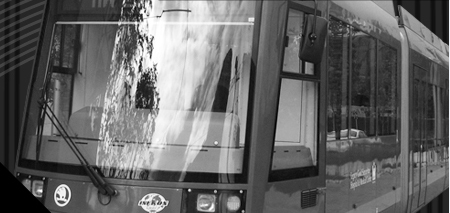
Arguing about light rail is rich with possibilities.
And it’s so easy to galvanize issues: Do we spend hard-earned taxes on transit or roads? Do we revive downtown cores or unclog asphalt arteries to suburbs? What neighborhoods should get the coveted rails or lanes?
The right strategic mix is the sane solution, but agreeing on the right blend can drive decision-makers batty. To wit, the 2000 light-rail election in which VIA Metropolitan Transit was buried first by critics and then by voters. The 2-to-1 defeat silenced local rail advocates for almost a decade.
But now VIA’s latest rail plan – a $180 million project to build a 2.7-mile east-west streetcar line through downtown as well as construct two major transit centers and two suburban bus park-and-rides – seems to be careening around the same pitfalls.
Oil and gas prices Travel
by Patrick
Comments Off on Gas prices top $3 a gallon in unusual run-up
Gas prices top $3 a gallon in unusual run-up
Just two days before Christmas, average U.S. gas prices have topped $3 a gallon. And you can expect prices to keep rising into spring and summer.
This isn’t a typical run-up.
Prices usually peak in the summer and slide down after Labor Day. In recent autumns, regular unleaded dropped an average of 22 cents a gallon, even when you exclude the freakish plummet in 2008 after the economy popped.
But this autumn, gas prices shot up 30 cents a gallon.
Oil and gas prices Travel: Thanksgiving
by Patrick
Comments Off on Being thankful will cost you more this year
Being thankful will cost you more this year
You’re going to pay a little more for a lot of things this Thanksgiving.
If you drive anywhere, gas will cost about 20 cents a gallon more than a year ago. Texas prices average $2.68 today.
If you fly, tickets will cost about 4 percent more. On top of that, at some 70 airports, including San Antonio’s, you now face security scanners that see through your clothes or agents who will touch in ways that few people would dare.
Staying home? Cooking a traditional turkey meal will cost 13 percent more in Texas.
Meanwhile, 9.6 percent of U.S. workers are looking for jobs. Experts, revising predictions, now say unemployment will remain higher than thought for years to come.
Yet, Americans seem ready to celebrate, an AAA survey indicates.
About 42.2 million people will make a trip of at least 50 miles this holiday weekend, up 11 percent from a year ago. On average, they’ll travel 816 miles and spend $495, nearly the same as last year. Nine out of 10 will go by car.
“When purse strings and heart strings compete in a tug-of-war, especially at this time of year, the heart wins out,” AAA President Robert Darbelnet said.
And so it has. Some things you can’t put a price on.
- Check weather
- Check state roads, or call (800) 452-9292
- Compare gas prices
Commuting Gas taxes Oil and gas prices Passenger rail Roads Transit: congress
by Patrick
Comments Off on What’s ahead for gas prices, taxes and roads
What’s ahead for gas prices, taxes and roads
You’ll likely pay more than $3 a gallon for gas next spring.
But you’ll probably keep paying the same 18 cents per gallon federal gas tax — which has lost more than a third of its purchasing power since it was last raised in 1993.
The roads you drive on will get worse. Transit will face ongoing challenges.
That’s what appears in the fog ahead as Republicans take back the U.S. House amid the worst financial crisis since the Great Depression. Feeding voter sentiments are widespread fears about rampant spending and taxing.
Incoming Transportation Committee Chairman John Mica of Florida told reporters last week that the gas tax will go nowhere — which mirror’s President Obama’s position — and that he wants to reconsider recent high-speed rail grants.
But Mica also said he’ll grab hold of a stalled $500 billion six-year transportation reauthorization bill, now a year overdue, and work to push it through. The bill is twice as much as the 2005 law and twice as much as what the gas tax will bring in.
Even so, the massive bill still falls some $150 billion short of just being able to maintain what we have, indicates a report headed by two former U.S. transportation secretaries. And that’s just the federal gap — states and local entities have holes too.
We are facing an “elegant degradation” of our transportation system, the report warns. It will be slow, sure and very costly.
SOURCES:
- Federal gas-price predictions
- St. Augustine Record report
- Reuters report
- New York Times report
- Well Within Reach report
OTHER STUDIES:
Oil and gas prices: peak oil
by Patrick
Comments Off on More on “peak oil” and economic decline
More on “peak oil” and economic decline
Think back to the oil shocks of 1973 and 1979.
The economic crashes back then are just a taste of what’s coming in two to five years, energy analyst Robert Hirsch told a conference Friday in San Antonio, according to the Express-News.
That’s when Hirsch estimates the world will reach peak oil production. After that, supplies will decline.
It’s going to be chaos, the story described. And this time the recession will be much longer and tougher to turn around.
“There will be no quick fixes,” Hirsch said.
Hirsch first rang the warning in a 2005 report he did for the U.S. Department of Energy. He and two other authors have followed up with the “The Impending World Energy Mess,” a book released this month. Read more in this post.
Oil and gas prices: peak oil
by Patrick
Comments Off on What “peak oil” could mean to you
What “peak oil” could mean to you
Peak oil.
There it is. A rather nondescript phrase that, when plugged into Google, calls up a mountain of angst and controversy.
Peak oil is the apex of production, when new field discoveries and technologies just can’t recover as much oil as we once did. The U.S. passed peak production in the 1970s. Some say we’re passing the global peak now, or about to.
The implications are huge.
Millions of years worth of energy have been stored in a compact and portable form to give us oil. Unleashed a century ago, the black gooeyness had a lot to do with transforming and buoying our modern economy and way of life.
Are there enough energy alternatives to replace black gold? Can we mitigate in time to avoid economic disaster?
Commuting Passenger rail Roads Safety Toll roads Travel: Interstate 35
by Patrick
Comments Off on Big plans for Texas’ worst highway (including tolls and rail)
Big plans for Texas’ worst highway (including tolls and rail)
Planners and pundits have long decried Interstate 35 as Texas’ worst highway.
Notorious traffic backups and numerous crashes on I-35, especially on the stretch from San Antonio to Austin, have spawned big-ticket projects such as the SH 130 tollway and Lone Star commuter rail. Putting two and two together from such thinking eventually led to the now supposedly defunct Trans Texas Corridor.
But more big plans are in the making.
Four committees, each looking at a segment of I-35, are holding public meetings this month to wrap up draft plans on what to do with the highway, its feeders and parallel roads. Billions of dollars worth of projects are eyed, including this for South and Central Texas:
- Convert one I-35 lane each way into toll/carpool lanes from Buda to Georgetown
- Remove tolls and widen SH 130 to six lanes from Seguin to Georgetown
- Build high-speed passenger rail from San Antonio to Dallas
- Build passenger rail from San Antonio to Laredo
- Widen I-35 from San Antonio to Laredo
